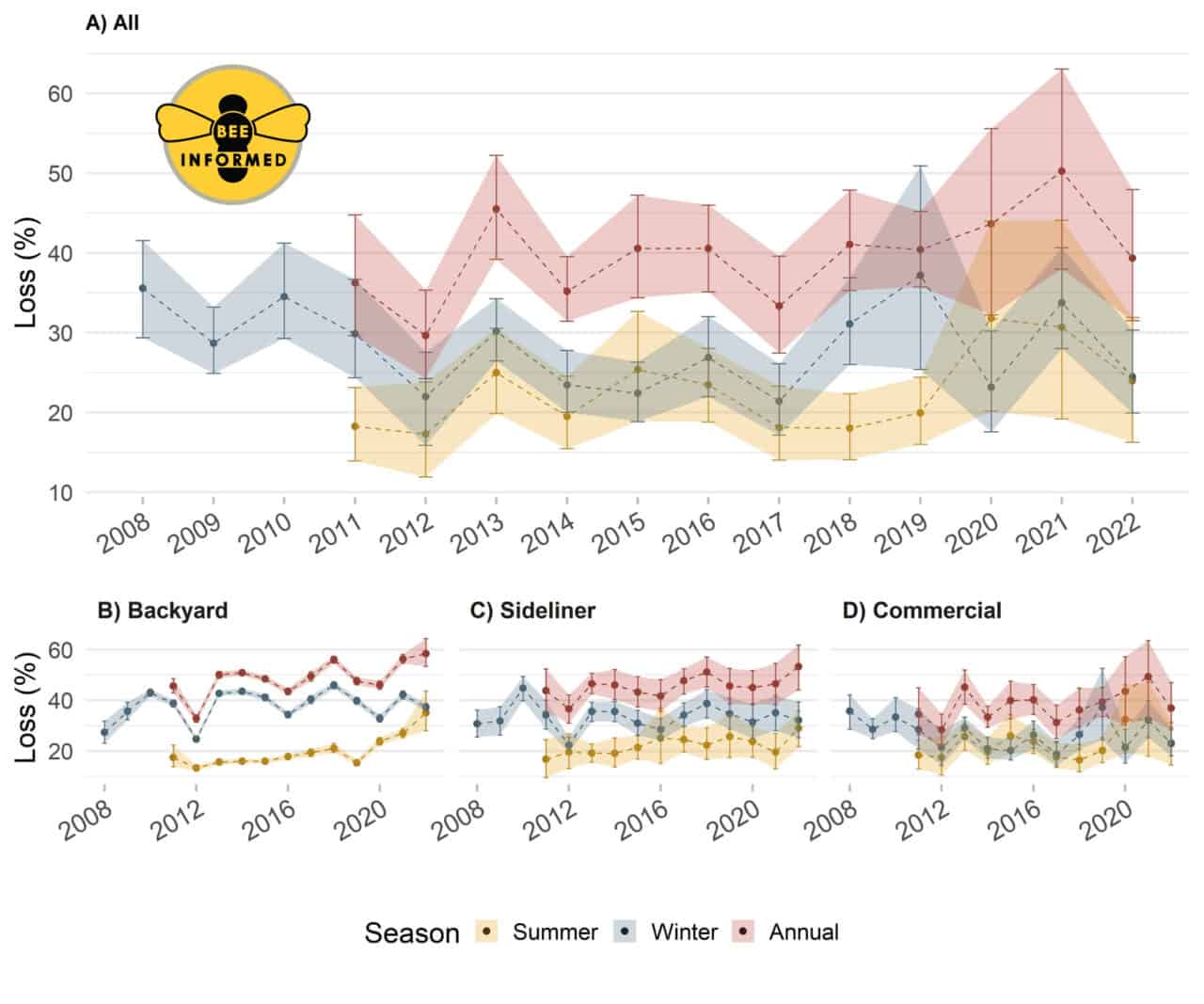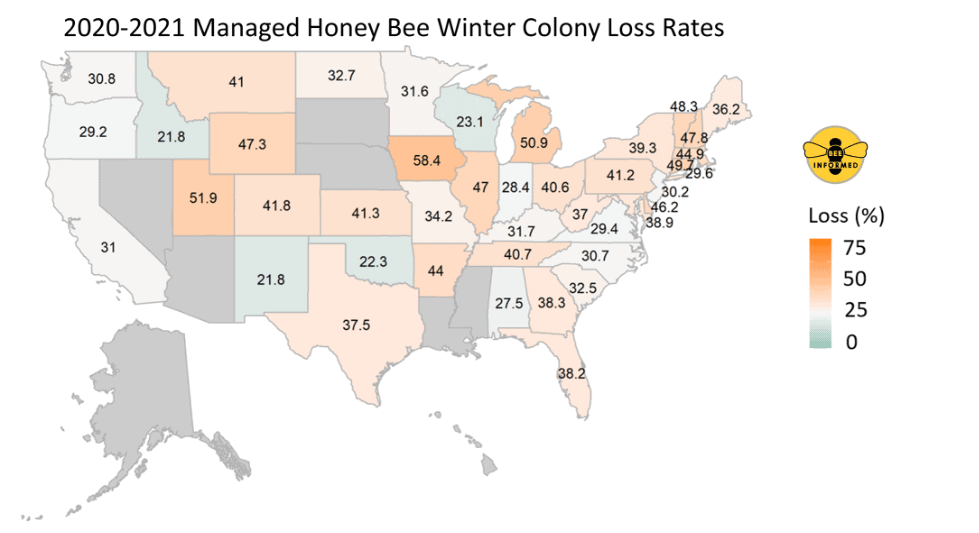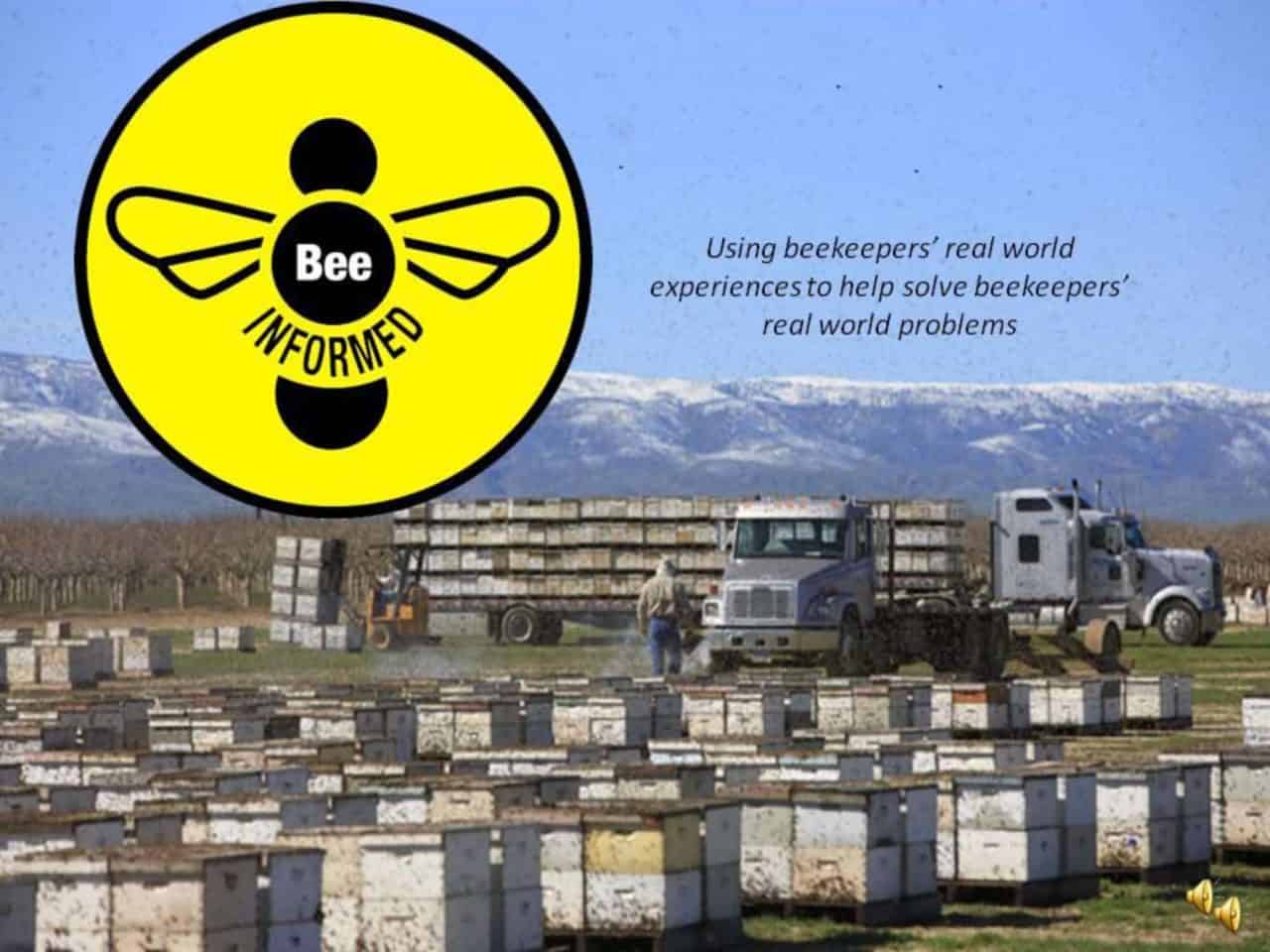Note: This is a preliminary analysis. Sample sizes and estimates are likely to change. A more detailed final report is being prepared for publication in a peer-reviewed journal at a later date. Download .pdf version here Dan Aurell1, Selina Bruckner1, Mikayla Wilson2, 3, Nathalie Steinhauer2, 3, *, Geoffrey Williams1, * 1Department of Entomology & Plant Pathology, Auburn University, Auburn, AL, USA 2Department of Entomology, University of Maryland, College Park, MD, USA 3Bee Informed Partnership, College Park, MD, USA *Joint last authors Corresponding Authors: nsteinha@umd.edu (NS) & williams@auburn.edu (GW) The Bee Informed Partnership (http://beeinformed.org) is a non-profit organization that works alongside beekeepers to improve honey bee…
Category: BIP In The News
United States Honey Bee Colony Losses 2020-2021: Preliminary Results
Embargoed until Wednesday, June 23th, 2021, 12.00 PM Noon CST Note: This is a preliminary analysis. Sample sizes and estimates are likely to change. A more detailed final report is being prepared for publication in a peer-reviewed journal at a later date. Download .pdf version here Nathalie Steinhauer1, Dan Aurell2, Selina Bruckner2, Mikayla Wilson1, Karen Rennich1, Dennis vanEngelsdorp1, Geoffrey Williams2 1Department of Entomology, University of Maryland, College Park, MD, USA 2Department of Entomology & Plant Pathology, Auburn University, Auburn, AL, USA Corresponding Authors: nsteinha@umd.edu (NS) & williams@auburn.edu (GW) The Bee Informed Partnership (http://beeinformed.org) is a non-profit organization that works alongside beekeepers to improve honey bee…
Bee Understanding
Earlier this year I had the opportunity to take part in the filming of a documentary by the Bee Understanding Project and it turned out to be a very fun and informative experience! The point of the film was to show the relationship between the almond and beekeeping industries through a job swap, where each participant, almond grower and beekeepers, could better see the other’s perspective. Unlike many other recent honey bee documentaries, this film does not portray commercial beekeepers or almond growers as the bad guys, but rather is fair in describing the challenges each of them faces as our agricultural systems become more…
BIP National Loss Survey Comparison with NASS results
The National Agricultural Statistical Service (NASS) recently reported the results of its second honey bee colony loss survey. The Bee Informed Partnership (BIP) also recently published preliminary loss results covering the same period. Despite the differences in methodology and sample sizes, these two surveys yielded comparable results. Specifically, we estimate 33.23% losses based on the BIP survey, and we estimate 35.39% losses when we use BIP methods to calculate losses from the NASS survey (Table 1). This is reassuring as it suggests past BIP surveys are representative of national losses despite the non-random nature of the BIP respondent pool. Both of these surveys were created…
Interpreting and Understanding the Differences in Honey Bee Colony Loss Numbers From Different National Surveys.
Over the last year, and for the first time, the National Agricultural Statistical Service (NASS) conducted a survey to monitor colony losses. The Bee Informed Partnership (BIP), in collaboration with the Apiary Inspectors of America, has also recently published preliminary loss data covering the same time period. While the core purpose of these two surveys are the same, to track honey bee colony losses in the US, there are significant and important differences in survey design (questions asked), delivery, data presentation, and the methodology by which loss rates are calculated. These differences mean that dissimilarities in loss rates reported by both surveys are expected. This…
Bee Informed Partnership Diagnosis and treatment of Common Honey Bee Diseases Wins Bronze!
At Apimondia this year our training manual for ‘Common honey bee diseases’ was submitted in the book category. This simple training manual was entered among many other highly competitive books and won a bronze award to our surprise! I originally wanted to create a honey bee disease/diagnosis manual because most of the literature had very small, poor quality photos which made disease identification difficult. So for the past 7 years I had been collecting images of the various bee diseases and pests I came across during colony inspections in Pennsylvania as well as in migratory operations around the country. In 2011, I moved to Northern…
Bee Informed Partnership Wins Silver for Website Category at Apimondia
At the 2015 Apimondia International Apiculture Congress in Daejon, Korea, the Bee Informed Partnership (BIP) took home the silver prize in the category for the Best Website on a Beekeeping Topic. This meeting of researchers and beekeepers from diverse backgrounds and from around the globe was the 44th meeting of Apimondia under the theme “Bees, Connecting the World!” Apimondia is an organization that promotes scientific, social, ecological and economic apicultural development throughout the world through the cooperation of beekeeping associations, scientific organizations and individuals throughout the world. Scientists, representing many countries from around the world, came to present their research projects, prominently displaying the diverse…
Food and Farm on America’s Web Radio
Dr. Dennis vanEngelsdorp talking with Ray Bowman on Food and Farm from America's Web Radio
BIP Ad. November 2013
Survey Winner Announced! Scott Jaynes is our survey winner for this year. Our BIP Tech Team visited Scott in August. You can read more about the visit on our blog.
BIP at SESYNC
"Dr. Dennis vanEnglesdorp of the University of Maryland describes the newly-created Bee Informed Partnership. Utilizing beekeepers real world experiences to help solve beekeepers real world problems."


